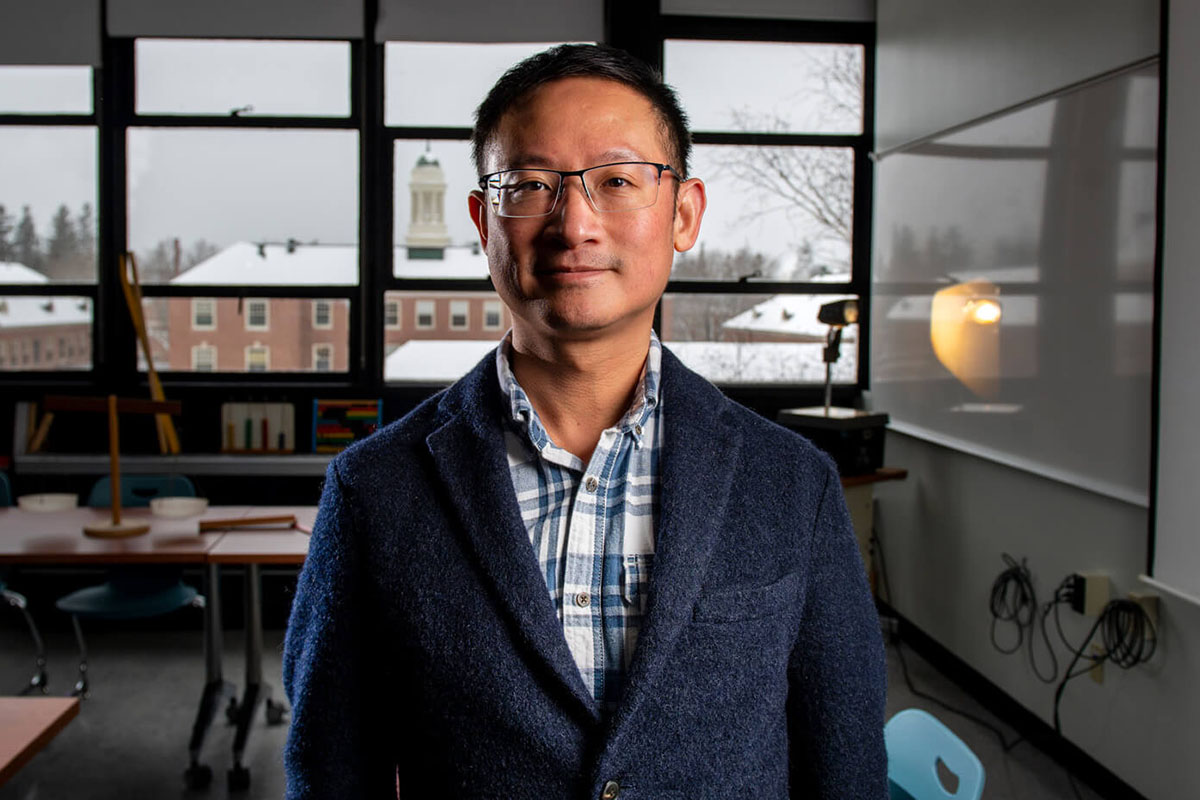
Ming-Tso Chien: Ph.D. student explores international secondary students’ experiences in Maine
When he came to Maine in 2015, Ming-Tso Chien was a Fulbright foreign language teaching assistant in the University of Maine Department of Modern Languages and Classics, where he taught classes in Mandarin Chinese.
Today, as a doctoral student in preK–12 education with a concentration in literacy, Chien was recently awarded a 2020–21 Chase Distinguished Research Assistantship by the UMaine Graduate School.
“Actually, the Fulbright program is partly responsible for my current research interest,” says Chien, who hails from the city of Taichung in central Taiwan.
“The program is not just for us to teach the language and share our culture, it’s also for us to learn about American culture,” he says. “I was taking a class about the history of immigration to the U.S., and that’s when I became interested in the experiences of migrant and immigrant communities in this country.”
In another class, Chien met Maryia Labree, then a doctoral student in education, who taught a class in literacy and language development. Chien became interested in topics covered in the class, so Labree introduced him to her adviser, associate professor of literacy Susan Bennett-Armistead. After the meeting, Chien decided he wanted to stay in Maine and pursue his Ph.D. with Bennett-Armistead as his adviser.
For his dissertation, Chien plans to study a group of Chinese international students in a high school, focusing on their experiences in different communities of practice. A community of practice refers to any social or academic groups to which the students belong.
“For example, AP classes, student clubs, athletic teams, international student groups, groups that form in the dorms,” Chien says. “I want to explore what their experiences are like in each of these communities, and how those experiences relate to their identity development and language socialization.”
“Not a lot is known about these students’ perspectives,” Chien says — a gap in the knowledge base he hopes his dissertation will address.
“I’m very thankful for the Chase assistantship, because it will allow me to focus all my time and energy on data collection for my research, and on the analysis and write-up afterward,” says Chien, who hopes to complete his dissertation in 2021.
In addition to the Chase award, Chien also has received two grants through the College of Education and Human Development’s Linda N. Lancaster Professional Development Fund, which was established to support and enhance the research of doctoral students in the college, as well as to expand their professional networks and experiences.
In 2017, Chien used a Lancaster grant to travel to the TESOL (Teachers of English to Speakers of Other Languages) International Convention in Chicago, where he presented a poster on critical literacy.
This year, he will use another Lancaster award to attend the American Association for Applied Linguistics conference, where he’ll present on “Identity Development and Language Socialization for International Students in Secondary Schools.”
Throughout his doctoral program, Chien has been involved in a variety of diversity initiatives within the broader UMaine community. For example, he serves on the UMaine Graduate Student Government’s Advocacy and Accessibility committee, and a few years ago he was a member of the university’s Diversity Leadership Institute cohort. He also worked with UMaine’s Center for Innovation in Teaching and Learning to establish a community of practice for international teaching assistants (ITAs) such as himself.
“Studying here as a student who is part of a racial minority and a linguistic minority, I’ve become more attentive to the needs of minority students,” he says. “In the ITA community of practice, we share resources and personal experiences with the goal of being more effective, equitable and inclusive teachers.”
Chien credits several UMaine faculty members for helping him along the way. In particular, he says Bennett-Armistead has been a very supportive mentor, along with Timothy Reagan, professor of applied linguistics and foreign language education. In addition, Tammy Mills, Rebecca Buchanan and Leah Hakkola, all assistant professors in the College of Education and Human Development, have provided tremendous support and influenced his thinking and research.
He hopes to be a faculty member at a college or university himself one day. However, he says he also can envision himself working for nonprofit or nongovernmental organizations, maybe doing outreach work on literacy with immigrant or migrant children and their families.
“I really enjoy all of the connections I have made since coming to UMaine,” he says. “Even though I’m far from home, it’s such a welcoming and supportive place that will always be special to me.”
Contact: Casey Kelly, 207.581.3751, casey.kelly@maine.edu
